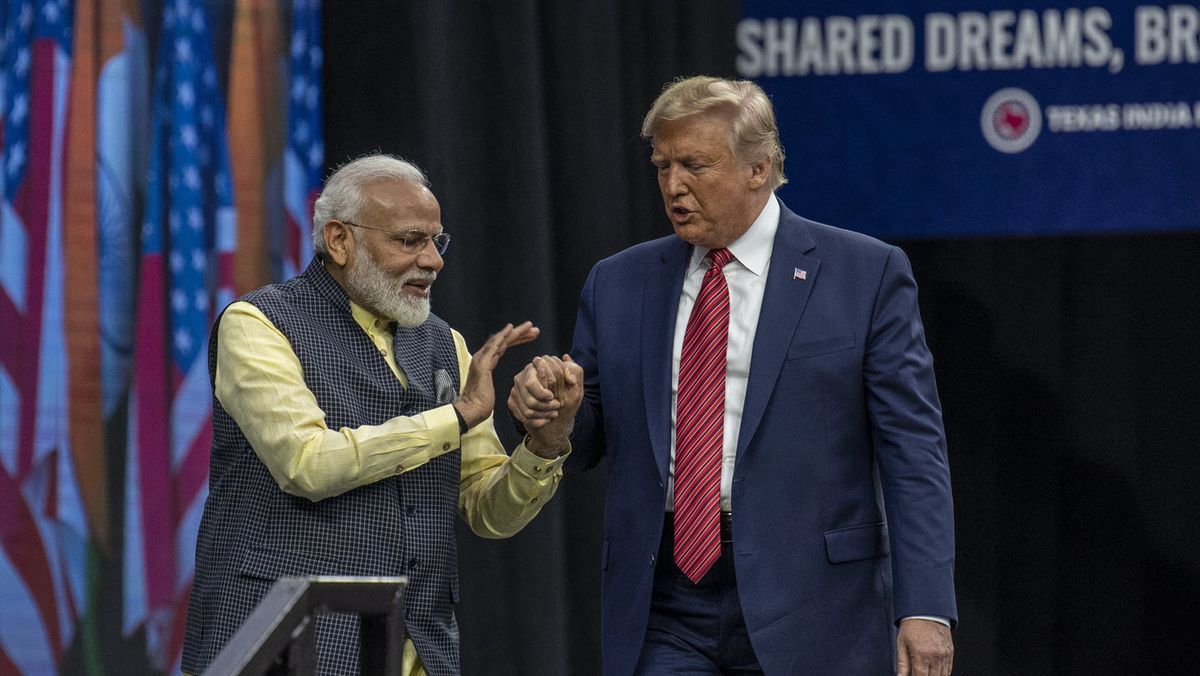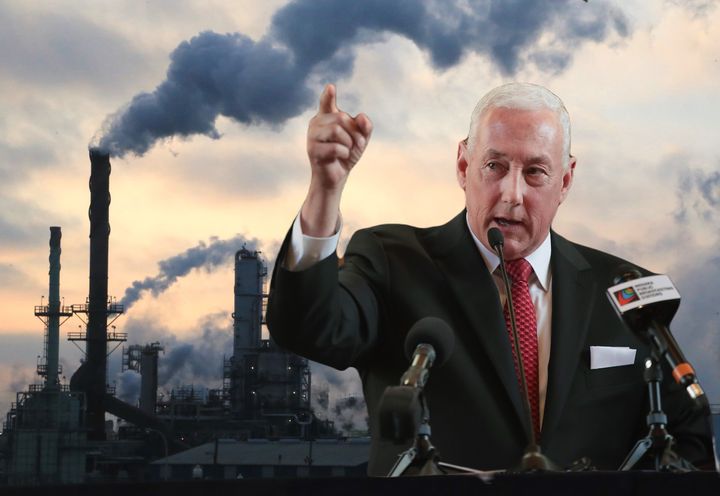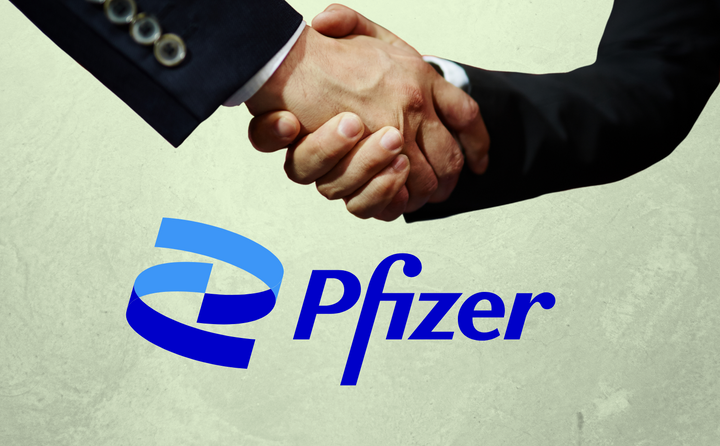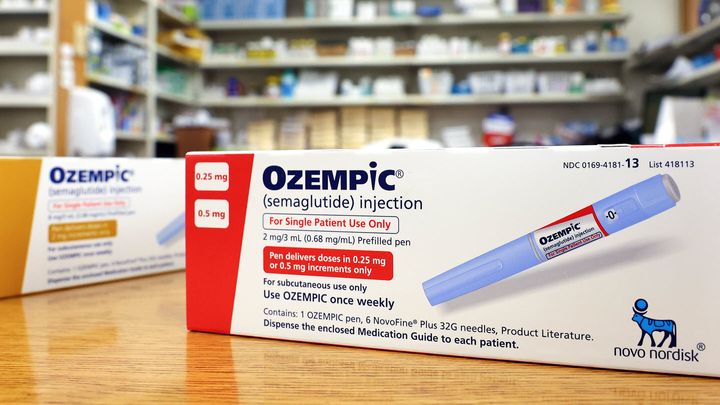Trump Poised to Give Big Pharma a Big Present in India Trade Deal
Trump and Indian Prime Minister Narendra Modi are discussing an agreement that would lock the world’s second-most-populous country into exclusive prescription drug arrangements.

The American Prospect is a nonprofit, independent magazine
covering public policy and politics. Sludge is re-publishing this article.
Donald Trump’s presidency has long maintained a fairly narrow legislative agenda. Despite Republican control of Congress in his first two years, he managed to sign little beyond tax cuts into law. And since Democrats took over the House, Trump’s legislative ambition has winnowed down even further, to one standout issue: lowering prescription drug prices.
He’s broken enthusiastically with GOP orthodoxy in his avowal to do so. When House Speaker Nancy Pelosi unveiled legislation that would invest the federal government with new authority to regulate and lower the cost of prescription drugs—never mind that it was a watered-down version of Representative Lloyd Doggett’s February drug-pricing bill that already sported majority support from House Democrats—it was met derisively by Mitch McConnell, who called the proposal “socialist price controls” and deemed it dead on arrival. John Cornyn concurred.
Not Trump. “It’s great to see Speaker Pelosi’s bill today. Let’s get it done in a bipartisan way!” he chimed in in response to Pelosi’s bill. And while the possibility of bipartisanship may be out the window with Tuesday’s impeachment inquiry announcement, that level of ardor for price controls has been sounded by the Trump administration consistently for months. “The president will not be outflanked on the left on drug prices,” said Joe Grogan, the White House’s top policy aide, in July.
But, as is always the case with Trump, the devil is in the details. While the president pledges urgently needed relief from accelerating drug costs at home, he’s hard at work forging a trade deal that would amount to a massive giveaway to pharmaceutical companies in India, eroding price controls and patent laws and imperiling the manufacturing of generic drugs across the country. Though it’s yet to be seen if Trump will actually shave a few bucks off the bottom line for pharmaceutical companies domestically, his advocacy for their price-gouging abroad could allow them to feast on the massive Indian market, shoring up expanded profits worldwide.
That’s the backdrop for the U.S. visit of Indian Prime Minister Narendra Modi, lost in the cacophony and theatrics of his rock star–style tour. His first stop in Houston, dubbed “Howdy, Modi” and attended by surprise guest Trump, resulted in 50,000 packing NRG Arena to the rafters to cheer on both demagogues as they shared the stage. Right-wing populism draws a crowd to all corners of the globe.
Modi’s visit isn’t just to appear at the U.N. General Assembly and trot out the shocking allure of Hindu nationalism and transnational anti-Muslim sentiment, along with securing some diplomatic cover for the blockade of Kashmir as it nears two months. Modi and Trump are meeting to hammer out a free-trade agreement, an ongoing negotiation between India and the United States that would enshrine some corporate protectionism for the pharmaceutical industry in the world’s second-most-populous country. A statement from the White House press secretary noted that the Modi visit would be a great opportunity for the two leaders to “discuss ways to deepen their energy and trade relationship.” The free-trade agreement is expected to be high on their agenda.
Every year, the U.S. government, through the Office of the U.S. Trade Representative, prepares its Special 301 Report, which identifies countries that do not provide “adequate and effective” intellectual property (IP) protection, creating hostile conditions for American trade and preventing “fair and equitable market access.” In this year’s rendition, released in April, the report strongly criticized India (among other countries) for having what it deems to be IP laws that are particularly hostile to American business interests.
Of course, that report was informed by submissions made by PhRMA, a lobbying group that represents the American pharmaceutical industry. It also takes issue with the Patents Act of India, due to its narrow patentability standards, which put a firm limit on the patentability of pharmaceutical innovations that do not display therapeutic efficacy. This is in contrast to the endless add-on patenting in the United States, which allows pharmaceutical companies to extend exclusivity and therefore pricing power for their medications.
A week before Modi’s visit, the U.S. medical device manufacturing and pharmaceutical companies sent a delegation, alongside Kenneth I. Juster, the U.S. ambassador to India, to give a two-and-a-half-hour presentation to the Indian commerce minister, Piyush Goyal. In it, they demanded the country remove price caps on medical devices. Goyal even asked the representatives of Indian medical device manufacturers to leave the room during the closed-door session. That meeting was a tone-setting prologue for this week’s negotiations, which are expected to yield a formalized free-trade deal shortly.
There are three key provisions in the intellectual property rights chapter of the renegotiated NAFTA that would also be incorporated into any free-trade pact with India, all of which would prove to be a major coup for American pharmaceutical profiteering. First, patents would be granted for all innovations, including new methods, uses, and processes of using a known product. That alone would represent a major overhaul of the Indian Patents Act, which only provides patents if the innovations prove therapeutic efficacy.
Next, it would grant data exclusivity for a minimum of five years for new pharmaceutical products, ten years for biologics—pharmaceuticals derived from biological sources—and an additional three years for new clinical information. And finally, it would require linking of marketing approval of generic drugs to the patent status of that drug (patent linkage), which would considerably enhance the monopoly power of the patent holder.
Such provisions would enable pharmaceutical corporations to attain never-ending monopoly positions. Take Novartis’s drug Imatinib. Due to India’s health-friendly laws and policies—its Patents Act in particular—the country was able to reject secondary patents of Imatinib, which resulted in multiple competitors in India manufacturing the lifesaving cancer drug at much lower costs. In the U.S., however, Novartis was able to extend its price-setting exclusivity on the drug’s creation for six additional years beyond that initial patent expiration date.
The runaway cost of insulin in the United States is a more general and egregious example. Evergreening patents has allowed insulin manufacturers to charge ten times what they charge in neighboring Canada for the same product. That dumbfounding spike in insulin costs, which has only accelerated through the Trump years, has resulted in numerous deaths due to rationing.
Locking developing countries into regressive patent laws to protect the profits of the pharmaceutical industry is a time-honored tradition in American trade policy. The Obama administration put India on a special “trade blacklist” in 2013, after the country refused to prevent the generic manufacture of multiple cancer drugs, and periodically lashed out at the Indian government for its policy of providing low-cost access to prescriptions around the world.
The U.S. government’s demand for Trade Related Aspects of Intellectual Property Rights (TRIPS) provisions, aimed at expanding the monopolies of U.S. corporations and keeping competitors out of the market, is a signature prerequisite of joining the World Trade Organization, and appears in everything from NAFTA to the thwarted Trans-Pacific Partnership.
Of course, Trump campaigned as a trenchant opponent to the status quo of American trade deals, hammering NAFTA and indicting the TPP in his indictment of the Obama-Clinton axis. But, in an exceedingly predictable turn of events, Trump is now championing exactly those sorts of arrangements, directly undermining his own rhetoric on even his pet policy proposals.
“The trade deal is a short-cut to take away India’s public health safeguards, which ensures affordable medicines and treatment to millions of people in India,” said Leena Menghaney, head of Doctors Without Borders’ Access Campaign in South Asia. “A trade deal with the U.S. will not only be disastrous for India, but also for all other developing and least-developed countries where Indian generics are exported.” India’s generic drug industry is the world’s largest.
Escalating prices enshrined by American patent laws don’t merely signal a gold rush for American pharmaceutical corporations. The threat of raised prices on everything from syringes and pacemakers to bandages could reverberate throughout the global market. Many of those items are exported to other countries; even American patients could be affected.
Of course, if Trump was serious about lowering drug prices, he could do so much more expeditiously by working on patent reform. That issue hasn’t been raised since a 2011 push by the Obama administration to rein in some of the more egregious patent practices that have been uniquely responsible for escalating prices in the United States. The bill was downed in Congress, and hasn’t been touched since.
The arrangement recalls the Janus-faced nature of the Trump experience in miniature: an empty pledge to curtail the most extreme corporate abuses, while actively facilitating untold corporate giveaways behind the scenes. After meeting Tuesday, Trump indicated that a deal with India would be announced soon. Though he’ll likely tout himself as a champion of lower drug prices on the campaign trail, his administration is poised to give pharmaceutical companies even more than they could have hoped for.
Related:




Comments ()